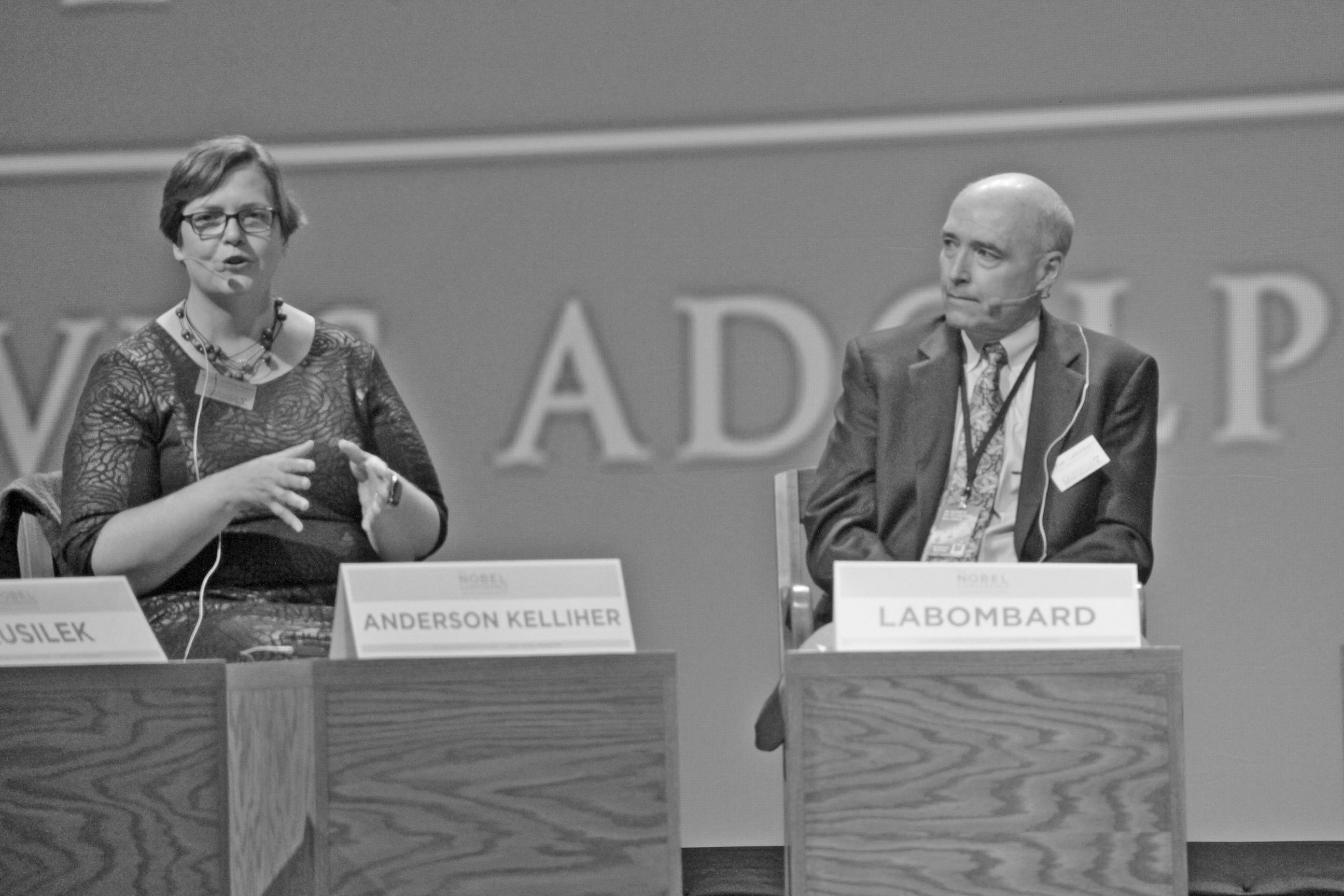The Nobel Conference is an integral part of the Gustavus community: an opportunity to engage with world-renowned scholars, authors, and scientists. Within the past few years, students have gained direct access to the speakers through discussions led by the Nobel Student Hosts. Although most students are interested in the topics presented at Nobel, particularly this year’s topic of climate change, arts and humanities majors often feel as though they do not have as much to gain from Nobel as their STEM counterparts.
But as the conference begins to develop and embody Gustavus’ liberal arts values there are many things arts and humanities majors can take away from the Nobel Conference–it all has to do with perspective.
As a Communication Arts/Literature Teaching (CALT) major, I never felt a need to attend the conference regularly. I lived in a mindset of: “What could I possibly take away from a lecture on soil?” and “This doesn’t directly apply to my future profession, so it doesn’t apply to me”.
I could not have been further off the mark with that view of my relation to the Nobel Conference. Although I will not be teaching about soil, economics, or reproductive technology in my middle or high school english classrooms, there is much to be gained from the speakers and their lectures.
As a future teacher, I will be giving lectures (although my goal is to keep lecturing to an absolute minimum in my classroom) of my own and facilitating discussions on a daily basis. The speakers at the Nobel Conference are world-class professionals in giving lectures and engaging in panels and discussions. Each speaker has a different way of presenting their opinions, findings, and general information that was effective enough to secure them a speaking slot at one of the most prestigious conferences in the United States. This year’s topic is relevant to everyone, so not only should arts and humanities students note what the speakers discuss, but how they deliver it.
Furthermore, the speakers this year include Amitav Ghosh and Mike Hulme, a fiction and nonfiction author and human geography professor, respectively. These two speakers offer a direct link between the topic of climate change and the arts and humanities. Specifically, there is a discussion session open to all students titled “The humanities and arts respond to climate change” that speakers Ghosh and Hulme will facilitate.
The speakers will discuss the power of human creativity and the capabilities we have as innately creative beings to aid in the adaptation and accommodation of the world in this era of climate change.
There are also events directly involving students from arts and humanities majors, such as the “Recitations and meditations on the Earth,” which includes poetry and music based around the changing nature of our earth. Dance and music are being intertwined throughout the entire conference to draw in students who may not typically attend the conference.
Sometimes it may be hard to see any connections between the conference topics and your future profession or field, but there is much to gain from Nobel for everyone. Whether that be learning presentation techniques, understanding how the arts tie into the battle against climate change, or representing climate change through poetry, music, and dance.
It is becoming more and more clear that the Nobel Conference is developing into an event that caters to both STEM and humanities and arts majors. Those in charge of the conference are making a conscious effort to include students from all majors in the conference.
If you would have told me my first year that I would be a student host for a Nobel speaker, I would have called you out for lying. Why would a Secondary Education major be chosen to host someone speaking about science, technology, or medicine? Although it took me a while to develop a mindset that connects the humanities to the Nobel Conference topics, I am certain that connection can and should be made.
